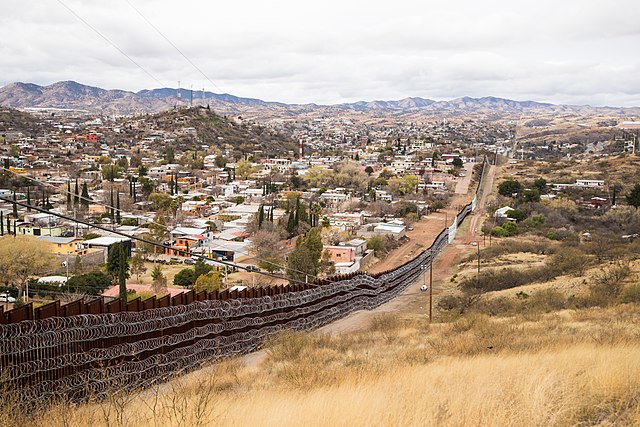Trump veto stands
March 30, 2019 | Expert Insights

The U.S. House of Representatives on Tuesday failed to override President Donald Trump’s first veto, leaving in place the “national emergency” he declared last month to build a U.S.-Mexico border wall that Congress has not funded.
Background
The Mexico–United States barrier, sometimes colloquially called the Border Wall, is a series of vertical barriers along the Mexico–United States border aimed at preventing illegal crossings from Mexico into the United States. The barrier is not one contiguous structure, but a discontinuous series of physical obstructions variously classified as "fences" or "walls".
Throughout his 2016 presidential campaign, Donald Trump called for the construction of a much larger and fortified border wall, claiming that if elected, he would "build the wall and make Mexico pay for it." Mexican President Enrique Peña Nieto has said his country would not pay for the wall. On January 25, 2017, the Trump administration signed Executive Order 13767, which formally directed the US government to begin attempting to construct a border wall using existing federal funding, although actual construction of a wall did not begin at this time due to the large expense and lack of clarity on how it would be paid for.
Analysis
Democrats who control the House did not attract enough Republican support, falling some three dozen votes short of the two-thirds majority vote needed to overturn Trump’s veto. Just 14 Republicans joined 234 Democrats in voting to override, one more Republican than had bucked Trump in a previous House vote on the border wall emergency. One Democrat and two Republicans did not vote.
With the 248-181 tally, Trump is now likely to continue scouring federal accounts for money he wants redirected to building a border wall, which he says is needed to curb illegal immigration and drug trafficking. However, House Speaker Nancy Pelosi and Democratic Representative Joaquin Castro, author of the resolution to overturn Trump’s move, said lawmakers would keep trying to block him through the regular congressional process of appropriating funds, as well as reviewing his emergency declaration again six months from now.
The battle over Trump’s emergency declaration also shifts to the courts, with various legal challenges already under way that could slow Trump’s building plans for some time. A coalition of 16 states sued in federal court in February to stop Trump’s border wall emergency;
“Thank you to the House Republicans for sticking together and the BIG WIN today on the Border,” Trump wrote on Twitter after the House vote. “Today’s vote simply reaffirms Congressional Democrats are the party of Open Borders, Drugs and Crime!”
Trump declared the national emergency on Feb. 15 in an attempt to bypass Congress and move taxpayer funds for the wall away from other uses already approved by the legislature. Bipartisan majorities of both the House and Senate rejected his move, voting to terminate the emergency before the president vetoed their resolution on March 15.
Additionally, a new migrant caravan of about 2,500 people was making its way through southern Mexico headed for the U.S. border, facing greater heat and a much cooler welcome than last year’s caravans. The caravan walked past the city of Huixtla in the southern state of Chiapas on Monday, but police were lined up to keep them moving along a highway outside of the town and did not let them enter — a contrast to last year when caravans were allowed to stay in the city centre.
The city said in a statement that it offered water and medical help to the caravan of 2,466 people, mainly from Nicaragua, Cuba, El Salvador, Honduras and Guatemala. It said the caravan included many children, and some were suffering in the area’s near-100-degree (39-degree) heat. Such caravans aren’t getting as a warm a welcome as they did last fall when local governments and church groups handed out food, water and clothing and police sometimes helped the migrants get rides.
Assessment
Our assessment is that this is a major political victory for President Trump whose entire campaign in 2016 was focused on ‘securing’ the southern border with Mexico. We believe that after the failure of the House Democrats’ attempt to stop the veto, they will have to regroup and re-strategize their approach towards President Trump’s political agenda.
Read more:








Comments